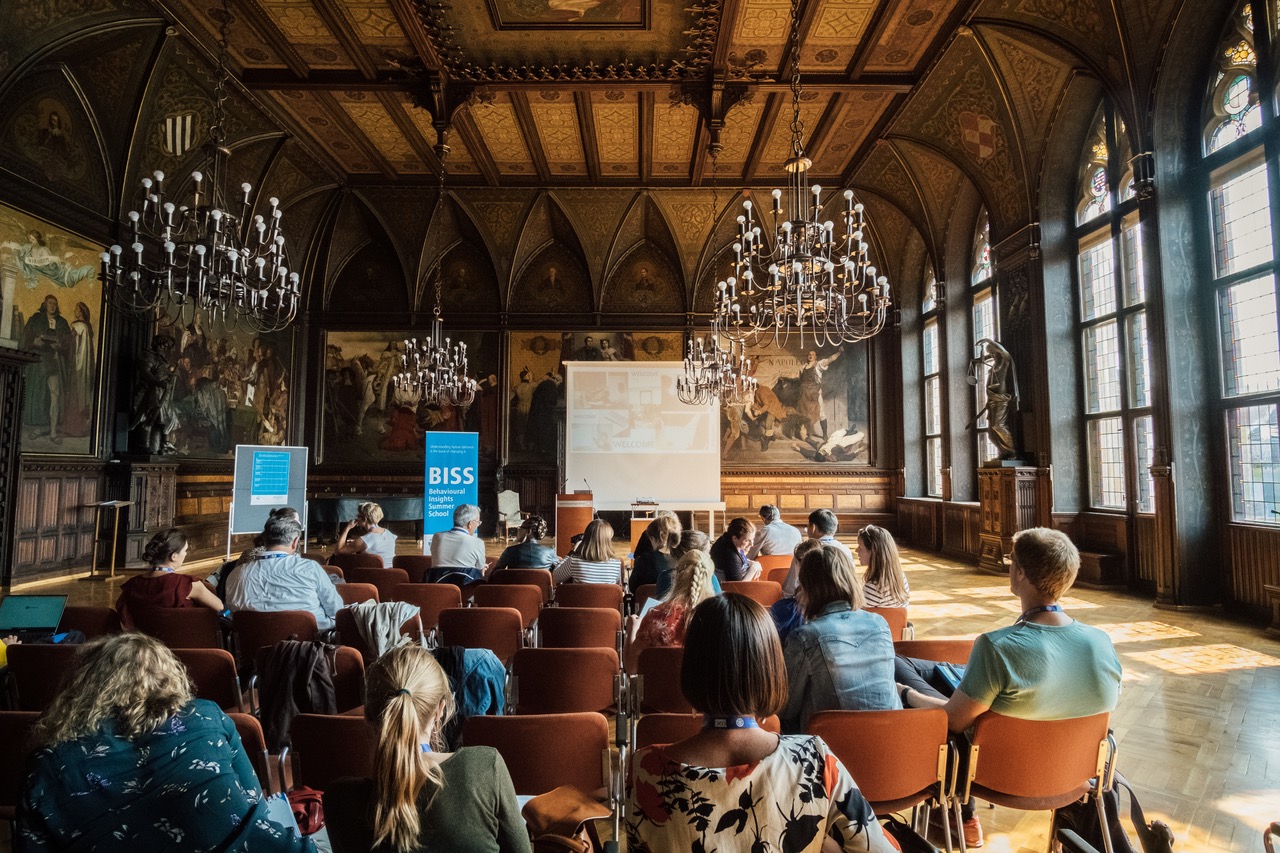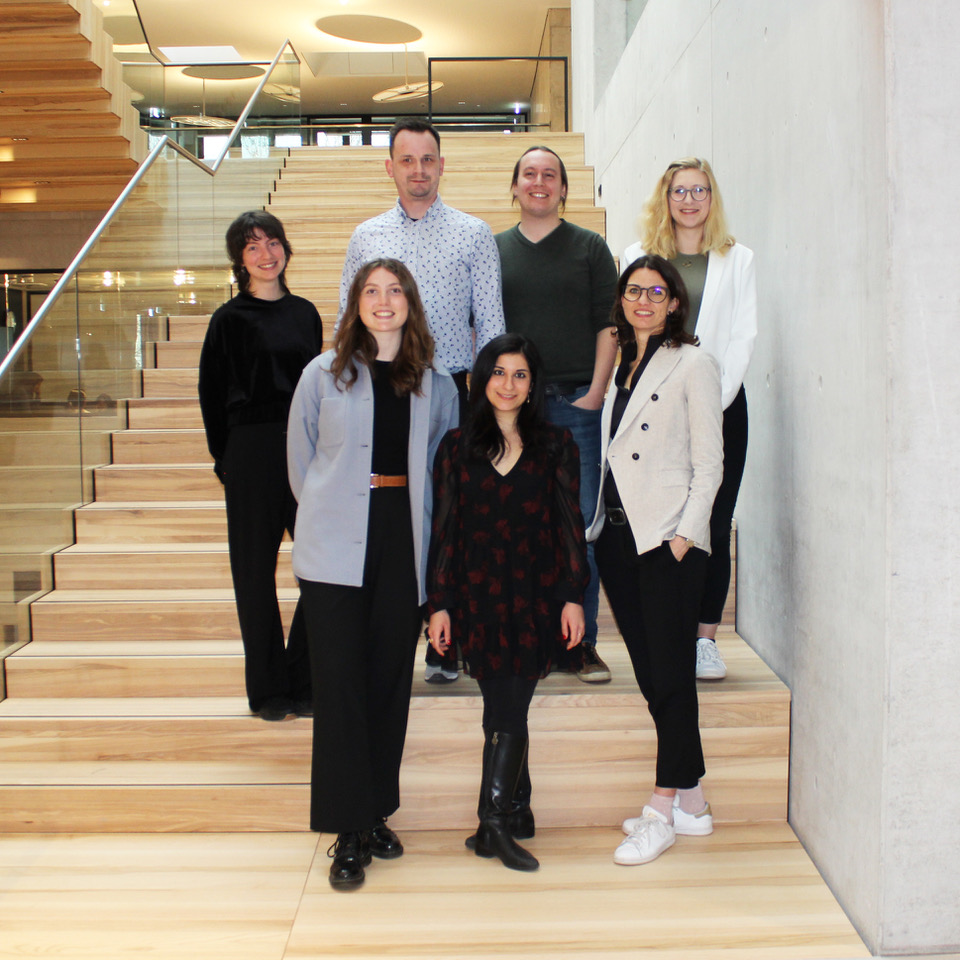WHO Collaborating Centre

WHO Collaborating Center: Why Behavourial Insights help us
In 2023, the WHO has named our Health Communication Working Group as a Collaborating Center for Behavioral Research in Global Health (BRIGHT). In doing so, we are supporting the Behavioral and Cultural Insights Unit (BCI), that was named as a flagship initiative in April 2020, in their goal of improving global healthcare with the help of findings from behavioral research.
The COVID-19 pandemic has clearly shown that successful health measures depend on people's behaviour. Behaviours such as the use of medication, the willingness to be vaccinated or the wearing of masks can be beneficial for the entire population if many people are convinced of them and practice them. As part of a resolution on behavioural and cultural insights, the European member states of the WHO agreed to integrate behavioural science more closely into the health sector.
We also advise the WHO via BRIGHT on current global health challenges and provide support in three areas over the next four years. Firstly, our focus is on processing the europe-wide COSMO pandemic data to better understand the implications for pandemic preparedness in countries and the region. Secondly, our aim is to investigate behavioural science phenomena known from international studies and to bring behavioural science into areas outside of research and make it usable. Lastly, when behavioral insights should be used outside of research, basic understanding of research quality and interpretation have to be transported as well. We want to support the WHO Office of the European Region in capacity strengthening in (behavioral) science literacy.


The Strategic roadmap for our Behavioral Insights Collaborating Center
We will propose methods and instruments that can be used by WHO to support Member State researchers in the direct and conceptual replication of behavioural research evidence. These will include participating in a WHO community of practice, participate in regular meetings and provide technical support to Member States as needed. As the European Programme of Work has made Behavioural and Cultural Insights a lead activity in the European Region, all WHO programmes and country offices in the European Region are seeking to integrate BCI concepts into their work. However, the knowledge and capacity to conduct and apply BCI research varies across the European Region. We aim to support the development of knowledge on behavioural barriers and the application of BCI methods through various targeted activities. For example, we will provide technical input to the WHO to design conceptual surveys and experiments to generate behavioural insights, e.g. in the focus areas of antimicrobial resistance, climate change, vaccine hesitancy, lifestyle behaviours or potential future health emergencies.
Findings from the behavioural sciences come mostly from research experiments and studies conducted in the Western hemisphere and under conditions that have made replication both rare and difficult. Our work will therefore focus on the replicability of experiments to close the replication gap. At the request and guidance of the WHO, we will therefore conduct secondary data analyses of BI survey data collected during the COVID-19 pandemic. This will also lead to cross-country comparisons of BI survey data, which we will make available to the WHO.

Our previous collaborations: The Behavioral Insights Summer School
Our collaboration with the WHO has resulted in three successful summer schools, the Behavioral Insights Summer School (BISS). They were held in collaboration with the University of Erfurt in 2017-2019. During the one-week stay, the 20-30 participants learned how theories of behaviour and behaviour change can be used to understand public perceptions, identify target groups and plan interventions. Learning methods included extensive group work in which participants were able to put concepts into practice using a fictitious case study on vaccination readiness. This provided a unique opportunity for PhDs in psychology, communication sciences and health management, the United Nations Children's Fund (UNICEF), the US Centers for Disease Control and Prevention and the WHO to work together to understand and apply behavioural science findings in the field of immunisation. Participants from 16 countries shared their experiences and knowledge to jointly assess how to improve vaccination behaviour and support various vaccination programmes. We are delighted that this collaboration with the WHO has led to another exciting collaboration in the field of behavioural research.
The Covid-19 Snapshot Monitoring Collaboration
The second fruitful collaboration established a COSMO-standard protocol, a questionnaire to collect pandemic perceptions, policy acceptance and vaccination attitudes during the COVID-19 pandemic. Due to the fast adaption and translation, we supported the BCI Unit in the questionnaire protocol and data analysis. This way, over 15 countries in the European Region were able to use behavioral insights in their pandemic response programmes and vaccination campaigns.








